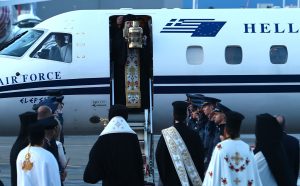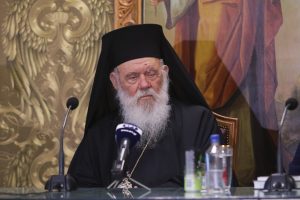Greece’s permanent representative to the United Nations, Evangelos Sekeris, underlined the need to reinforce all available tools at the UN’s disposal and introduce new ones to maintain peace, during an open discussion at the UN Security Council on peacekeeping operations.
“It is necessary to strengthen existing tools and develop new ones for maintaining peace. From conflict prevention and identifying causes to mediation, peacekeeping, and peacebuilding,” Ambassador Evangelos Sekeris said.
“The world is facing both old and emerging strategic risks, threats, and challenges, which create increasingly complex and insecure conditions,” he noted.
UN Secretary-General Antonio Guterres, in the “New Agenda for Peace,” presented a vision of how the international community can more effectively prevent conflicts and maintain peace at a time when the world is experiencing unprecedented and overlapping crises.
Regarding the “New Agenda for Peace,” Mr. Sekeris, citing the UN Secretary-General’s proposal that peacekeeping missions are mechanisms of “effective and actionable multilateral diplomacy” as well as “a fundamental tool of the UN Charter,” emphasized that the action pillars included in this agenda, aimed at strengthening and updating the peacekeeping system, provide highly useful guidance for achieving the best possible outcome.
At the UN Security Council, delegates called for realistic and achievable mandates with clear strategic objectives. They broadly agreed that missions must garner broad political support and have adequate, predictable funding. However, contention emerged when they discussed add-on mandates in certain contexts.



